|
“The beginning of all effort is the recognition of what is.” -Romano Guardini, Learning the Virtues That Lead You to God, 1963 Professional athletes do many appearances while playing. We get paid to show up at fundraisers, youth camps, watch parties, and promotional events. Something that is practically a guarantee when attending these appearances is one or more sets of parents coming up to tell us about their child who plays soccer. Often these conversations are quite enjoyable, but almost inevitably, there are a few who want to talk about how their son or daughter was short-changed in their youth soccer experience. There is a lot that these parents say to us, but the consistent element is: my child didn’t succeed because of some external factor. This may very well be the case for some of them. It is equally true, however, that it is certainly not the case for all of them. Much of the time the boy or girl just wasn’t good enough for a particular team, level of competition, or system of play. The point of this post is not to drop the heavy hammer that many kids run out of the athletic ability rope and should give up. No, this post is about the absolute necessity of taking an honest stock of where someone actually is--especially for the spiritual life. Romano Gaurdini says that “the beginning of all effort is the recognition of what is.” The reason for this being that you cannot begin making the effort to improve unless you start with who you already are. Any professional athlete will tell you that it is far more helpful to be taught how to assess and address weaknesses rather than to pretend they don’t exist. In fact, most professional athletes are fairly obsessive about identifying areas in their game where they can improve. If I determine I’d like to be a better shooter with my right foot, for example, then I must begin with the harsh—but necessary—reality that I can barely complete a pass with my right foot. If I never acknowledge my current ability, I’ll constantly run into problems—poor technique, inadequate fundamentals, and so on. I’ll never become a strong shooter without addressing the plain truth of my current ability. This is a skill that requires disciplined practice and will never simply be acquired because I want it to be so. First comes acknowledgment, then a plan for improvement, all for the hope of becoming a good right-footed shooter. This same principle can and should be applied to our spiritual lives. Just as improvement can only take place in athletics by beginning with where an athlete currently is, spiritual advancement can only begin by taking an honest assessment of where one currently is in relation to God. This means you’re far better off admitting that you struggle to pray for 5 minutes and taking that to God than wondering when you’ll receive the Stigmata. It is far more helpful to search deep within yourself and locate and name your pride, selfishness, ego, envy, or lust than only present to God your most pious and holy thoughts. He knows your heart already—He’s just waiting for you to know it as well. One of the most helpful exercises for high-school, collegiate, and professional athletes is to watch film in order to identify strengths and weaknesses. The team watches the most recent game in order to see what needs to be addressed that week in practice. This same concept can migrate into our spiritual lives—we look for points of departure and development in order to draw nearer to God. This practice is not to discourage but to improve. There’s no shame in acknowledging ourselves as we really are. In fact, God can really only begin to heal us once we acknowledge where we are hurt. The Physician cannot tend to our wounds unless we let Him see them. Several days ago, I was talking to my wife about this concept and she brought up how watching film for athletes is similar to the examination of conscience recommended by the Church. Examining one’s conscience on a regular basis is like looking back over the tape to see the strengths and the weaknesses—the graces and the sins—in order to grow. Then, with this self-knowledge, we can go to God, say thank you, and ask for forgiveness, trusting in His merciful love. God looks down on us and loves us as we are, but He also promises that His love is transformative. He looks down and says, “I love you,” while at the same time calling us higher. He wants us to identify what is so that we may cooperate with His grace and begin the beautiful work of improvement. This we call sanctification. May we all be willing to look at ourselves honestly—as we really are—so that we enter into the effort that is the fight of faith (cf Jude 3), trust that God’s grace is sufficient (see 2 Cor 12:9), and become the saints Jesus Christ died for us to be.
0 Comments
I watched her curly little head bounce away from me further down the hiking path and around a bend, out of my sight. I knew her older brothers would slow down so she could keep up with them, taking her under their wings. In the midst of a global pandemic, the woods were a safe space, open and free from the danger that seems to lurk everywhere these days. Nonetheless, my heart rate picked up along with my pace. What if a stranger was on the path? What if she fell and got hurt? I couldn’t see the path ahead, and I was afraid. I hurried along, my anxiety increasing as my steps forward failed to lead me to a view of my children. My thoughts turned dark while the woods around me became bright. Trapped in my own head, I failed to notice the sun breaking through, filtering light through the treetops. Until—there! The sunshine reflecting off of my little girl’s sequin covered sneakers allowed me to catch a glimpse of my babies. “Red light!” I yelled, in our family shorthand for “stop-moving-your-body-immediately.” The birds scattered, startled. My children froze in place as they waited for me to catch up with them. As I knew they would be, the boys were watching closely over their little sister. Taking her by the hand, they coached her through the mud and over the fallen branches. “See, Mama? Pretty!” my curly little girl exclaimed, joyfully depositing semi-crushed wildflowers into my hands. After rubbing her nose against mine, she joined her brothers on a moss-covered log, not registering my fear for even a moment. Exhaling a sigh of relief, I praised God in joy for great big brothers, my safe little girl, and a Father who is Light, illuminating the way. In this season of uncertainty, I find myself living that moment on the hiking path time and again: rushing forward, afraid, unable to see what is ahead. My days are filled with research and passionate conversation about schooling, and what the right choice for our family will be this fall. We deliberate over each barbecue invitation and mourn the loss of birthday celebrations that will never come to life. Parenting in a season where change is the only constant is overwhelming. I’m living that moment on the hiking path again: where I could not see, there was light. Though I was afraid, the Father was before me, protecting my little ones. So now, instead of remaining trapped by my thoughts, I am pursuing His power and protection. I am practicing seeking the light. In his letter to the Colossians, St. Paul reminds us that we can live in joy even in the midst of hardship, and he shows us how: “[We are] strengthened with every power, in accord with His glorious might, for all endurance and patience, with joy giving thanks to the Father who has made you fit to share in the inheritance of the saints in light. He delivered us from the power of darkness and transferred us to the kingdom[...]”(Colossians 1:11-12). Joy is a pursuit. By God’s great mercy, we are called out of the darkness and into the light. We are invited to share in the inheritance of the saints, if only we can pursue His power and glorious might instead of depending upon our own. When left to myself, I abandon joy for the hopelessness and despair that seems to permeate the world during this pandemic. However, when I pursue the heart of Christ, I am promised endurance and patience. I am equipped to face the reality of a sick and broken world and to remain unbroken by its weight. In His power alone, joy still abounds. Joy is a practice. Turning hands full of crushed wildflowers to praise comes with intentionality. So: let us train ourselves to joy. When we feel the dark closing in on us, we are called to joyfully give thanks to the Father and to seek His fingerprints that so graciously mark our lives—to acknowledge His many gifts. When the trees block our view, let us enjoy the sunshine filtering through their branches. When the path is rocky and unsure, let us acknowledge that He walks alongside us, and before us. When we suffer through sickness, hardship, and isolation, let us hope in God who has overcome suffering once and for all. This is joy. Grace-filled moments of contentment, happiness, peace, safety, and hope that we open our eyes to experience, even in the midst of the dark. Where happiness is fleeting and circumstantial, joy is ours to keep no matter the circumstance. Along this path I will stumble and fall. Joy will evade me as I am burdened by fear and uncertainty. But I will allow the Lord to raise me up, seeking the joy He offers me despite my skinned knees. Like my curly girl, I choose to trust that I am not alone. I choose wildflowers and light. I chase joy.
I stumbled into entrepreneurship in 2016 after studying philosophy, theology, and anthropology for my undergraduate and graduate degrees. Ending up in the business world felt like a long and winding road filled with sleepless nights, much discernment, and many conversations. In the few years after graduating from college, like many early 20-year-olds, I felt untethered and unsure of my direction. What was my direction in life? What was my mission? How did the Lord want me to use my gifts and talents to serve him? At the time, I attempted to answer these questions by searching for women who had accomplished work in the same field that I was going into. I spent endless hours looking for women on LinkedIn in their 40s and 50s who had achieved a successful career while also being married and raising a family. My search was futile. Although I did find a couple of single Catholic female entrepreneurs to connect with, for years, I felt like I was “making it up as I went along”: trying to weld married and family life while scaling a business, hiring and firing employees, serving clients, and trying to keep God in the center of it all. Every vocation for women within the Church is beautiful and worthy, but being a Catholic entrepreneur in particular has been challenging. Although I have developed some great friendships with secular business women, I can’t connect with them fully about discerning business decisions with my spiritual director or praying a daily rosary for my employees. Within the Catholic sphere, I can’t completely relate to stay-at-home mothers or women who are working a 9-5. I desperately needed a mentor but could not find one who was willing to devote time and effort to my growth. Speaking to women’s particular vocation, Pope John Paul II in Mulieris Dignitatem spoke to every woman’s calling to love: “The moral and spiritual strength of a woman is joined to her awareness that God entrusts the human being to her in a special way. Of course, God entrusts every human being to each and every other human being. But this entrusting concerns women in a special way - precisely by reason of their femininity - and this in a particular way determines their vocation”. Here, Pope John Paul II illuminates women’s ability to “receive the other” because of the design of their femininity. Through their motherhood, spiritual and physical, women are capable of receiving, knowing, and loving others in a manner different to men. God entrusts humanity to women, knowing that she is uniquely made to care for those around her. This act of entrusting carries through to every aspect of our modern world, including the sphere of business. Just as a mother nurtures her family, every woman in business has the mission to nurture those in her care: her clients, her employees, her colleagues. In a special way, Catholic women entrepreneurs co-create with God to create something out of nothing. Every woman-owned-business begins as merely a dream placed on her heart. Her mission is to share with the world her services and products—glimpses of God’s own heart and a genius that only she can share. This is why mentorship is essential: so that women who are called to practice business can find and live out their own unique mission in this world. Women are called to cultivate the gifts and talents of others, to foster the dreams that only they can bring forth. A mentor provides guidance, critique, and reassurance as a young person matures. This is crucial to the formation of any woman, entrepreneur or not, but also fulfills the role of each Christian to evangelize the world. Without this relationship, one might not have the tools and resources to realize their full potential. By fostering the gifts and talents of others through mentorship, women are living out their feminine genius. My Co-Founder, Emma Moran, and I created Catholic Women in Business in 2018. CWIB is an online resource of Catholic women who are seeking to live a life of faith while striving for excellence in their careers. We hope that it’s a space for women to cultivate mentorship and connection. My dream is to initiate a movement where there is more mentorship available within the Church, for women and men. In encouraging these relationships, I believe we will be able to activate the missions of those within our communities, answer the Church’s call to a New Evangelization, and to bring forth the Gospel into our society. The principle of God’s Infinite Love is consoling in prayer, encouraging in our personal darkness, and a bright light for preaching and teaching. But when it comes to pastoral care, this Infinite Love can feel overwhelming, idealistic, and impossible. On a more personal level, Infinite Love care can lead to feelings of guilt at not having done enough and shame at not being enough. Consequently, the idea of accompaniment can quickly appear to be wishful thinking. How am I to walk with people when I am just one person with one sunrise and one sunset each day? There are dozens or hundreds of people who need care in my community, but I can barely finish my homily, or you can barely get the kids to school on time. The problem is with two false thoughts. First, we are not God. We are not the source of Infinite Love, and we shall never be. Second, accompaniment does not mean that I have to walk with each person all day. This is impossible. Honestly, many good Catholics have difficulty letting go of control. The worst example of this is the savior complex. We are not the saviors, Jesus is. The reality is that the Lord God is the principal Accompanier, not us! And, out of His goodness, He has chosen myriads of intermediate accompaniers. In other words, and hear me well, WE do not, nay, we cannot try and do it all on our own. And isn’t it ironic that right after we priests preach and teach that to people that they cannot do it on their own, then, as spiritual caretakers we immediately set aside our theological principle of interdependence and try to do it all on our own. Thoughtful accompaniment lies in deploying a sophisticated network of groups and individuals to care for, to check on, to talk to, to bring communion to those in need. God doesn’t expect us to be perfect, just saints. Let the lesson of accompaniment be your lesson today: just do what you can, but don’t go at it alone. Only God is Infinite Love. Have you ever evangelized in the streets? St. Vincent Pallotti did in the Rome of his day. He would go to a piazza and begin preaching. People would gather around. Some priests even judged him for engaging in this type of evangelization because they considered it beneath his dignity as a priest. However, he knew that many people did not come to church. Pallotti believed that the Church needed to go to people and not wait for people to come to church. These truths hold firm today. This is the call of all the baptized. We are sent by Christ into the world to preach his Gospel by word and deed – to be his witness in the world as his apostles or missionary disciples. Pallotti wanted to preach not only to those who did not believe, but also to Catholics in order to revive their faith. It may seem strange to evangelize in the streets, but in my hometown of Hammonton, New Jersey, Catholics have been doing so for 145 years. Every year, Catholics in the community have participated in an annual procession through the streets of the town in honor of the Blessed Virgin Mary under the title of Our Lady of Mt. Carmel, whose feast day is today. This is a very public display of faith that spills out from the church building and into the streets—mirroring the work of Pallotti. We are told “Go” at the end of Mass, but go and do what? Go into the streets, not only the literal ones, but also the ones online. We are moved outward by Christ. Our faith in Jesus Christ and our experience of his infinite love and mercy is not our private matter. Nor is it ours to decide the quality of another’s life of faith. Our mission is to witness Christ to all we encounter and accompany them into an encounter with him, in and through the community of faith, the Church. Through good accompaniment, sincere community, and deeper conversion, all can come to know that they are sent by Christ. May the charity of Christ urge us on! “Joy is prayer, joy is strength, joy is love, joy is a net of love by which you can catch souls.” -St. Mother Teresa of Calcutta Throughout history, mankind has endured plagues, wars, and all sorts of crises that threaten our existence and make the day to day seem unbearable. In these past several months, the world has experienced the global effects of the novel coronavirus pandemic. Our country is also facing ramped up civil unrest. However, as Christians we are called to persevere with joy. As James 1:2-4 exhorts us: “Count it all joy, my brothers, when you meet trials of various kinds, for you know that the testing of your faith produces perseverance and perseverance must complete its work so that you will become fully developed, complete, not deficient in any way.” We can look back over two millennia and witness the hope that has always been present in the darkest of circumstances. Over and over, God our merciful Father remains with us, equips us with strength, and encourages us to dwell with Him in order to endure all things with joy. Furthermore, we have many examples of holy men and women who have stood steadfast in faith through great trials as joyful ambassadors of God’s love and mercy. During these times, I have felt the pangs of doubt, discouragement, and fear. I am completely aware of my smallness and my vulnerability. I keenly recognize that I need help so that I can find peace amidst hardship and uncertainty, and I daily choose to pray for guidance and courage to walk in faith. I am grateful for parents who raised me in the Church, taught me the power of prayer, and nurtured me in an environment of faith. I am grateful for my parish family who stand together to build up the Body of Christ in our community. I am grateful for a stalwart husband who shows me daily how to immerse myself in the loving arms of Jesus by attending Mass, reading Scripture, praying devotions, and asking for the divine blanket of protection and provision that only comes from Him. I am grateful for my married children who witness their sacramental love to all by living their marriage covenant. I am grateful for children who share their gifts to fill our home with laughter, creativity, and beauty. I am grateful for grandchildren who are joyful and full of curiosity and excitement and so easily make me forget about the troubles of the world. I know that I am puny, weak, and small, but God made me for love and reminds me through all these people—and many more—that He is always with us, giving us what we need to gallantly march through the nitty gritty of life. This gives me cause for great joy! How we behave determines the success of our mission as ambassadors for Jesus. We are told in Scripture to remain in God and to use the gifts of the Holy Spirit to navigate the messiness of this life. We are commanded to love God, others, and ourselves no matter the circumstances. The fruit of living in love is a joyful countenance. When we practice surrendering our doubts and fears and choose to act in faith and love, peace is a direct outcome. When we live out of an attitude of peace, we are unbound and able to exhibit joy in all things. St. Teresa of Avila encourages us: “Let nothing disturb you, nothing frighten you, all things are passing, God never changes. Patient endurance attains to all things. Whoever possesses God is wanting in nothing; God alone suffices.” As Christians, we are called to be the living reflection of our Lord and Savior. As we traverse this particularly troubling time, we strive to be beacons of hope to those despairing, lost, and without a foundation of faith. We are all commissioned to share the love and mercy of God to all we come in contact with. It is not a suggestion, but a mandate from our baptism. No matter how inadequate we think we are, if we surrender to God’s will, He will supply all we need to make any situation bearable and even joyful. There may be uncertainty, strife, devastation and hardship around us, but the heart of Jesus, who is all love, is within the soul of each of us. We are called to make it manifest through our acts of kindness, gentleness, patience, forgiveness and service. Each of us, one individual at a time, has the power to bring peace and joy to others as we continue to navigate the day to day. Below are some practical tips for remaining steadfast in faith and witnesses of joy:
Together, each of us mere mortals can build an environment of joy—a joy which will make all the difference in our hurting world. When I was a senior in high school in the diocese of Joliet, then-Bishop Peter Sartain came to celebrate one of our monthly school Masses. I was asked to assist the Bishop for the day, and throughout the day he and I had many warm conversations. I received a piece of mail a few weeks later from Bishop (now Archbishop) Sartain containing a handwritten note and several prayer cards with Blessed Pier Giorgio Frassati’s image on them. Little did I know that the young Blessed would soon become one of my dear patron saints. In my opinion, anyone who offers their life as an apostle on mission—including lay and ordained ministers, Catholic school employees, catechists, and all spiritual guides—should keep Blessed Pier Giorgio Frassati as their patron saint and their example to combat despair and to joyfully share the Gospel. Blessed Pier Giorgio shows us the Christ-like demeanor and personality that the Church and her ministers and missionaries should possess as they evangelize the world. Blessed Pier Giorgio makes an excellent spiritual guide and mentor because he was an ordinary young man with a profound commitment to the poor and to justice. There are countless books and articles that describe how Pier Giorgio spent hours serving the poor and the homeless, often giving away the money he had for bus fare and even his own jacket! His parents misunderstood his great actions of charity, and often scolded him when he returned home late without his coat. He was never distracted from the missionary imperative of the Gospel. Instead, he served those on the margins as Jesus commanded. Archbishop Wilton Gregory of Washington D.C. recently stated in a webinar, “The Church lives in society. The Church does not live behind the four [walls] of the structures where we worship.” Just as Pier Giorgio Frassati befriended the poor and sought justice as a “man of the beatitudes,” we too must go beyond the four walls of our churches, homes, and offices into the margins of our society to serve our brothers and sisters and work for justice. Blessed Pier Giorgio also accompanied others in their pursuit of God. He maintained unlikely friendships and was neither bound up by cynicism nor weighed down by scandal. Instead, he actively worked against these in his interactions with all. Many stories detail his love for pranks, making bets with his friends over games and making the stakes be attending Mass or Adoration. Like this soon-to-be-saint, we must live in the world while encouraging others to return to Christ in the spirit of friendship. As apostles on mission, we must live, work, and play with a renewed spiritual vision, driven by the practice of spiritual accompaniment. The quality I most admire in Blessed Pier Giorgio is his ultimate trust in God’s plans. He did not try to take control of his life’s plan nor did he envy God’s authority. Rather, he allowed God to guide him as he discerned his future and his mission in life. Pier Giorgio brought Church doctrine to life through his service and actions. He lived with a gospel-inspired freedom. He spent time in deep prayer, contemplating the mission God had laid before him, discerning to serve the poor as a lay man with expertise in mechanical engineering rather than as a priest. Pier Giorgio trusted God. As Alfonso Nebreda, S.J. wrote, “We must not forget that man cannot nourish his spirituality with orthodoxy alone … there is more to Christianity than this … for faith is life” (Kerygma in Crisis?, Nebreda). Blessed Pier Giorgio embodied the Gospel, and he lived it out according to his mission from God. As we consider the life of Blessed Pier Giorgio Frassati, I invite those who serve the Church as lay or ordained ministers, catechists, educators, and spiritual guides to adopt this young saint as a guide for our spiritual lives and our ecclesial missions. Let us invite the same Spirit who lived in Blessed Pier Giorgio and who makes the Church vibrant to renew our hearts, minds, and missionary efforts. Blessed Pier Giorgio, pray for us! Interested in learning more about becoming an apostle on mission? Click here to learn more. During our engagement, we were told several times to expect that something would go wrong during our wedding no matter how much we planned. Well, neither my husband nor I expected a pandemic to be that unexpected surprise! For me, getting married during COVID-19 has been a spiritual journey. I’ve learned a lot throughout the wedding planning process – namely, to embrace flexibility, be open to changes in my expectations, find gratitude in every situation, focus on what’s most important, and trust in God as well as our family and friends. The biggest lesson for me has been to more fully understand that we don’t control our lives as much as we think we do. My family, friends and colleagues know me as detail-oriented, prepared and a planner (who probably strategizes too far in advance). I’m not a fan of surprises, I’m cautious, and I like to meet or exceed expectations at all times. Growing up, my friends nicknamed me “Mom” because I always made sure to have the extra snacks, hand sanitizer, suntan lotion, an umbrella, etc. for wherever our adventures would take us. When it came to wedding planning, I wasn’t the type of person who had everything planned out since childhood. But when it became clear that my husband was “The one,” I read Catholic wedding websites and would run ideas by him. The day after his June 30, 2019 proposal, I went to our church to find out about the process and everything we needed to do to select a spring date in 2020 that would then determine all our other vendor options. As more and more reports popped up in March that the novel coronavirus had made its way to the U.S., my then fiancé (now husband) remarked with a laugh, “I knew things were going too smoothly with our wedding planning!” We hoped and prayed that all would be clear by the time our May 23, 2020 wedding would take place. Initially we prayed that we’d still be able to go on our European honeymoon. Oh, how quickly those naïve prayers turned into “Lord, please let us still be able to get married in the Catholic Church on May 23!” Our priest assured us that he’d do anything in his power to ensure our sacrament could happen, even if our wedding didn’t necessarily look the way we or the church had planned. For this, we were so grateful. In addition to our desire to be together legally and in the church, a lot was riding on our decision to marry on this particular day – including job offers and job relocations, home sales, moving me to a new location since we were in a long distance relationship, and more. We gave it all to God to handle. As our priest said in a recent homily, “I can’t. God, you must.” We planned for several different wedding options (a tiring effort!). As one of my bridesmaids put it, we had “Plans A, B, C, and X, Y and Z!” Many times, I found myself reflecting on what Jesus said to Martha in Luke 10:38-42, “Martha, Martha, you are anxious and worried about many things. There is need of only one thing.” By focusing on our sacrament of marriage and making sure that it could happen above all things, we grew closer to God and one another in handling the first big cross of many crosses that will come with marriage. When our home state opened for Phase 1 in early May, anything we could do that was originally planned we saw as an extra blessing. I found gratitude in the smallest of things, like getting a manicure for our wedding. Thankfully, we were able to have our nuptial wedding Mass on May 23 with a small celebration of less than 25 people to witness our marriage vows. We had a reception at the restaurant of a fellow parishioner, where we held a Zoom call with our relatives and friends so they could see our first dances and toasts. Our best man and maid of honor were out of the state and not able to attend in-person, so they gave their beautiful speeches virtually. Our nuptial Mass was the first time since the second week in March that both my husband and I received the Eucharist and attended Mass in person. The amount of gratitude I felt during the Liturgy of the Eucharist and receiving our Lord left me feeling as though love was overflowing. I appreciated every moment of the Mass like I was listening to it for the first time; being fully present and not taking any part of the liturgy for granted. I had prayed every day for a wedding day and marriage more beautiful than I could ever imagine, and our nuptial Mass and special day were certainly that. I wouldn’t have it any other way. We’re just a few weeks into married life, and we are looking forward to a lifetime to go! "For freedom Christ has set us free." -Galatians 5:1 In light of the upcoming celebration of freedom in the United States on the Fourth of July, I was pondering the meaning of freedom as I went to Mass recently. Freedom is not only a word, but a way of life that many Americans hold to be holy and sacred. To begin, what is freedom? What does it mean and entail? The misguided and misinformed definition I once held is that I form my conscience to what I see fit, what I subjectively see to be right and wrong. Along with the culture, I often asked, “What is truth?” This proved to be a heavy burden to bear throughout my life, and I often found myself in state of restlessness and worry. According to the Catechism of the Catholic Church, "’God willed that man should be left in the hand of his own counsel, so that he might of his own accord seek his creator and freely attain his full and blessed perfection by cleaving to him" …Freedom is the power to act or not to act, and so to perform deliberate acts of one's own. Freedom attains perfection in its acts when directed toward God, the sovereign Good” (1743-1744). Furthermore, each of us also has a conscience which, when properly formed and applied, can lead to our ultimate freedom. The Catechism of the Catholic Church 1776 continues, "Deep within his conscience man discovers a law which he has not laid upon himself but which he must obey. Its voice, ever calling him to love and to do what is good and to avoid evil, sounds in his heart at the right moment. . . . For man has in his heart a law inscribed by God.." The conscience is not something that we lay upon ourselves, but something that God inscribes on our very being. Our conscience is not up to interpretation, not up to the current fad, but a gift given by God to His children, in love, to know what is right and wrong—to know how to walk justly and thus live freely. In the Mass I attended, the priest answered my questions about freedom by explaining that freedom comes from a well-formed conscience, from knowing where we are going, whom we are serving, and ultimately from knowing what truth is. A well-formed conscience frees us from the ties of the world and binds us to the truth of Christ, helping us see the world through the lens of truth. The Church beckons the faithful to seek truth, question, find answers, and ultimately find freedom by living in the truth. As Christ himself said, “For this I was born and for this I came into the world, to testify to the truth. Everyone who belongs to the truth listens to my voice.” By conforming our minds and hearts to Christ, we better form and inform our conscience. As daughters and sons of God, this faculty is ours, it is written on our hearts. In this formation, we can reason and determine what is right and wrong, what leads to the path of joy and peace, and who we are. The conscience then frees us to choose the good, and when we fall, to repent and seek Him again. This Fourth of July, let us ask the Lord to show us the path to a well-formed conscience to live a life of freedom. May we ask ourselves where we are forming what we believe, what truths we hold sacred, and if God will enlighten our minds to show us the path of freedom. Let us rejoice knowing that "Where the Spirit of the Lord is, there is freedom” (2 Cor. 17). |
Details
Archives
July 2024
Categories
All
|
About |
Media |
© COPYRIGHT 2024 | ALL RIGHTS RESERVED



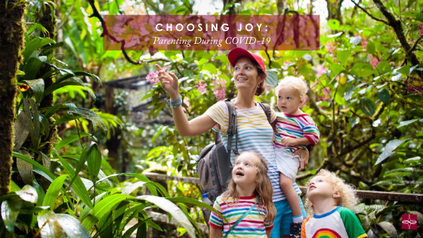

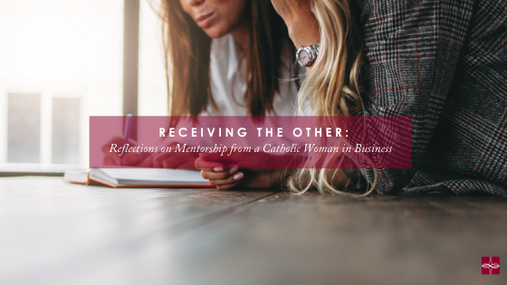

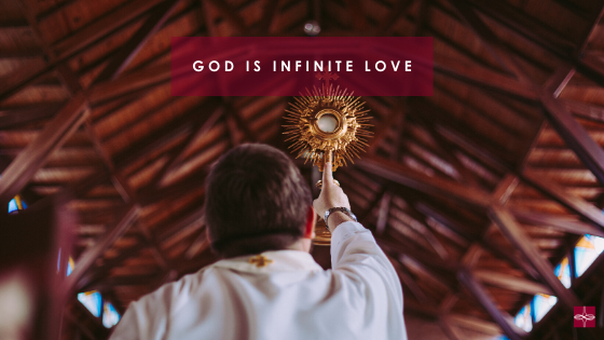
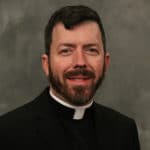
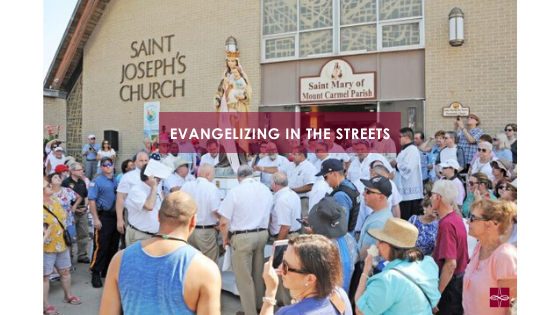
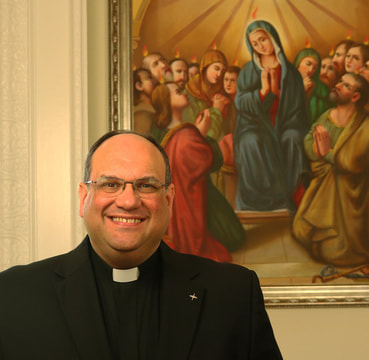


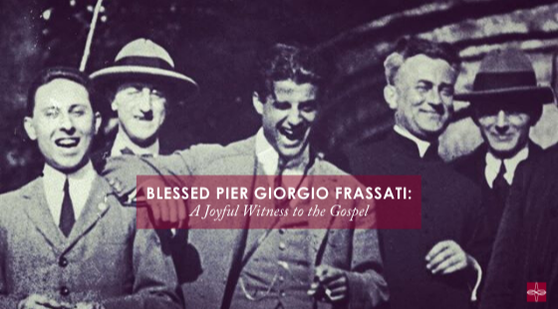





 RSS Feed
RSS Feed